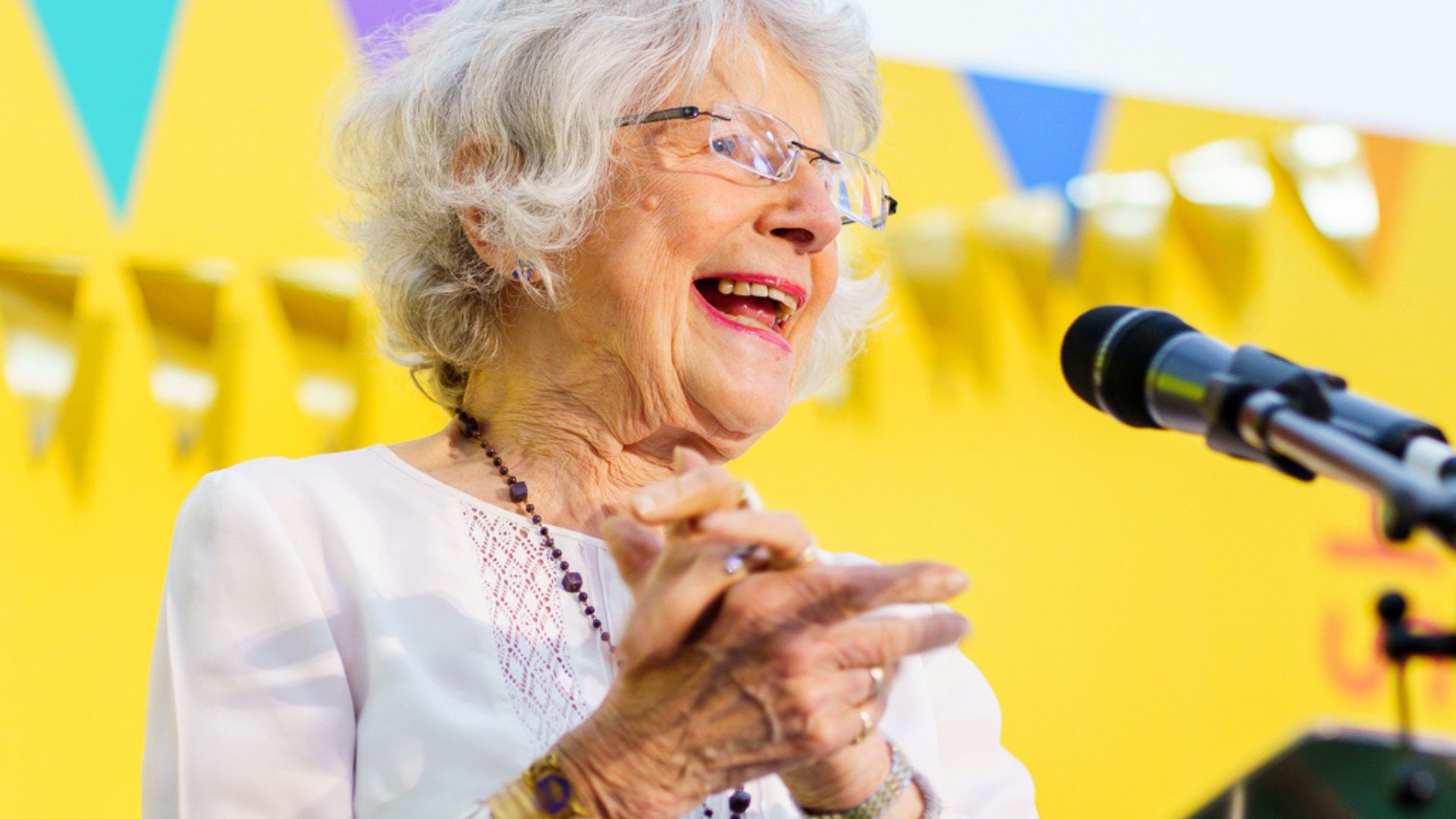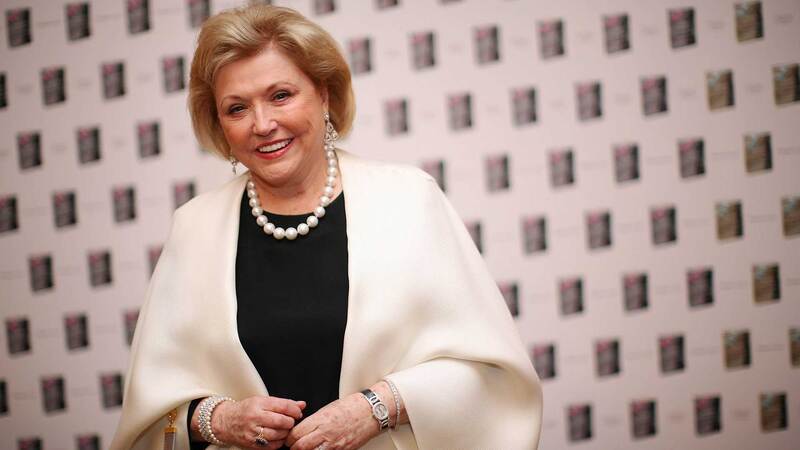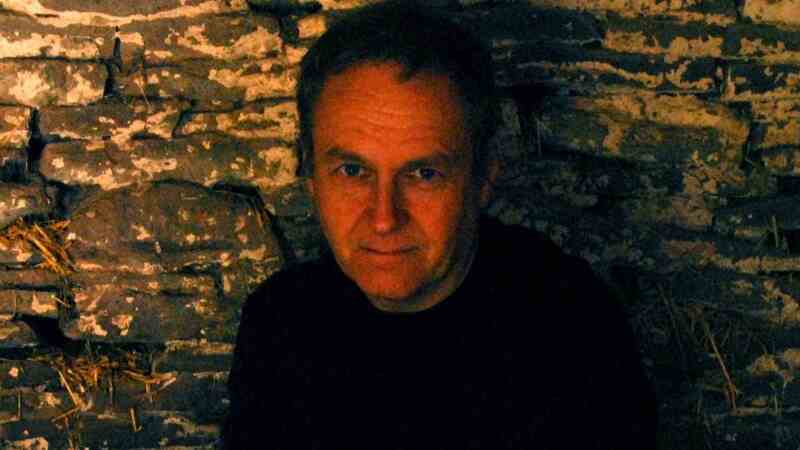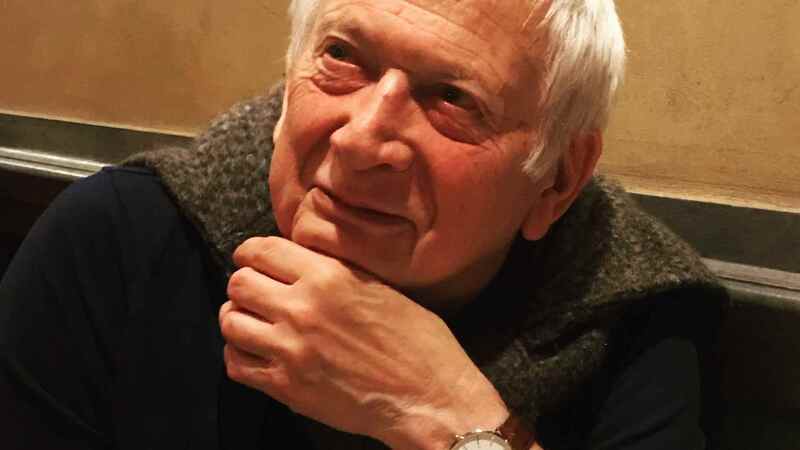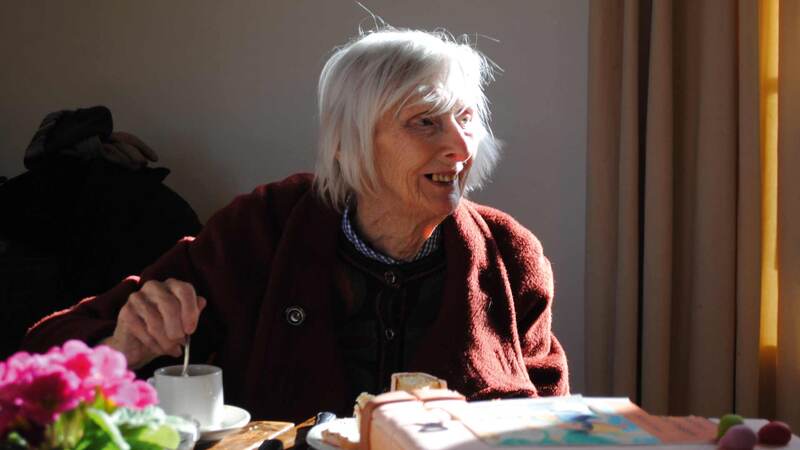You are viewing your 1 free article this month. Login to read more articles.
Obituary: Carmen Callil
By Baroness Gail Rebuck on behalf of Penguin Random House
Just after Shehan Karunatilaka won the Booker Prize last night, Carmen Callil, the most extraordinary publisher of her generation, passed away quietly at her home. She will be mourned by the whole publishing industry who are flying off to Frankfurt this morning.
Dame Carmen Callil and Sir Allen Lane had more in common than their well-deserved titles. Both founded publishing companies which uniquely became brands recognised by the reading public – Penguin founded in 1935 and Virago in 1972.
Carmen came over to the UK in the early 1960s from Melbourne, Australia. She worked for Hutchinson, Anthony Blond and Andre Deutsch, but made her name as an inspired book publicist for Panther Books. She left publishing briefly to work for Ink, the counterculture magazine launched by Richard Neville and Ed Victor, but soon after meeting Rosie Boycott and Martha Rowe, who had launched Spare Rib magazine, Carmen decided to apply the Spare Rib philosophy to books and founded what became Virago Press in 1973. Carmen’s brilliant insight was to republish a host of women’s classics from Antonia White’s A Frost in May to Willa Cather and Edith Wharton. Virago had also published contemporary authors, including Margaret Atwood, Angela Carter, Maya Angelou, Eva Figes and Kate Millett.
Carmen founded Virago, originally financed by her work as a publicist, until she raised enough money for Virago to flourish as an independent publisher.
She embodied the passion and vocation of a great publisher with a brilliant editorial eye but also a genius for marketing and a passionate focus on design which is why those green Virago spines continue to line up on the bookshelves of several generations.
Carmen joined Chatto & Windus and the Hogarth Press in 1982, succeeding Norah Smallwood as managing director and publisher while remaining chair of Virago. At Chatto, Carmen worked with Toni Morrison, Marina Warner, A S Byatt and Alan Hollinghurst. She nurtured a galaxy of talented young publishers and became known both for her commitment to excellence and passionate work ethic. Chatto sold to Random House in 1987 along with Jonathan Cape and the Bodley Head.
When Si Newhouse bought 20 Vauxhall Bridge Road and the CVBC Group moved in alongside Century Hutchinson, Carmen was the first to scan the area for restaurants and junk shops, writing a memo to all staff with her then meagre findings. Carmen’s office reflected her exuberance – a colourful clutter of covers, manuscripts and pets which showcased her fierce independence in the corporate world.
Virago arranged a management buyout in 1987, partly financed by Carmen’s great friend Bob Gavron, with Random House retaining a 10% share.
Virago, who eventually sold to Little, Brown in 1996, two years after Carmen decided with customary decisiveness that the corporate world was not for her and resigned from Chatto becoming publisher at large for the group.
Carmen remained a publisher to her core, advising her close author friends and nurturing a new generation of writers. She became a critic and a broadcaster and as well as joining the board of Channel Four, she chaired the Booker in 1996 and co-authored with Colm Tóibín The Modern Library, the best 200 books in English since 1950. Sadly, their passionate discussions were not recorded.
Carmen wrote the bestselling Bad Faith in 2006, published by Jonathan Cape. It told the story of Dr Anne Darquier, her psychiatrist for seven years until one day in 1970 she rang Anne’s doorbell for one of her three weekly appointments and there was no answer as Anne had committed suicide. Carmen discovered Anne’s full name at her funeral and the more shocking revelation that her father had been Louis Darquier de Pellepoix, Commissioner for Jewish Affairs in Vichy France and known as the French Eichmann. This extraordinarily deeply researched history book was followed in 2020 by Oh Happy Day where Carmen traced the turbulent history of her British ancestors from impoverished working class to deportation to Australia for petty crimes. But for Carmen those times and these times were terrifyingly similar, denouncing the 19th-century ruling class with chilling parallels to the inequalities of our time.
For all Carmen’s many honours and prizes, from the Benson Medal in 2017 to becoming a Dame in the same year, Carmen must be remembered for her campaigning spirit and indefatigable anger and passion. She championed writers and the art of publishing, she railed against Britain’s imperial past, she rooted out and exposed inequality, she campaigned against Brexit and she demonstrated against climate change. As her cancer developed and she received immunotherapy at Hammersmith Hospital, she railed against the cuts in the NHS that left her fighting over non-existent wheelchairs and she bemoaned the lack of local care in the community, acknowledging she was lucky enough to have friends who were constantly at her side and organised her care.
But I will remember Carmen as a loyal, funny, caring, brilliant friend and mentor – a trailblazer in publishing and in life – an original spirit who will leave such a vast void in the world of books, and in the lives of all who loved her. She embodied courage and individuality and lived her life firmly by her personal ethical compass. I am sorry she did not live long enough to complete her personal memoir but the way she lived her life will light a path for generations of women to come.





